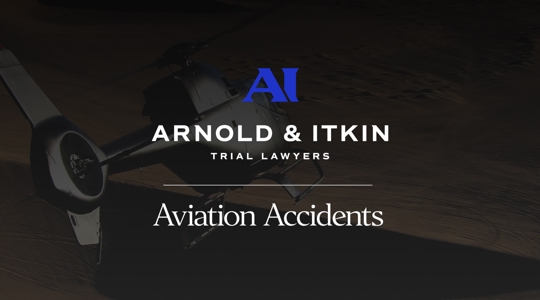Private Plane Accident Lawyers
Our Law Firm Demands Answers. Over $20 Billion Won.
There are few things more terrifying than being injured in a plane crash. When you board a plane, you trust that the plane is built suitably, that the pilot is qualified and that you can enjoy this mode of transportation in a safe, efficient manner. In the wake of an airplane accident, there are many questions that need to be answered regarding where the crash occurred, whether you should file individually or as a class action suit, etc. According to data from the National Transportation Safety Board (NTSB), the majority of civil aviation accidents involve private airplanes.
In one wrongful death suit, the family members of a deceased father and son whose plane crashed while they flew toward Moloka'i, received $3.5 million in damages.
After the NTSB examined the accident, it found that "…the flight crew made several mistakes during its approach to Moloka'i, including selecting the wrong frequency for activating pilot-controlled runway lighting, concluding that the airport was obscured by clouds despite weather information to the contrary, misstating instrument approach headings and descent altitudes and descending below appropriate altitudes."
